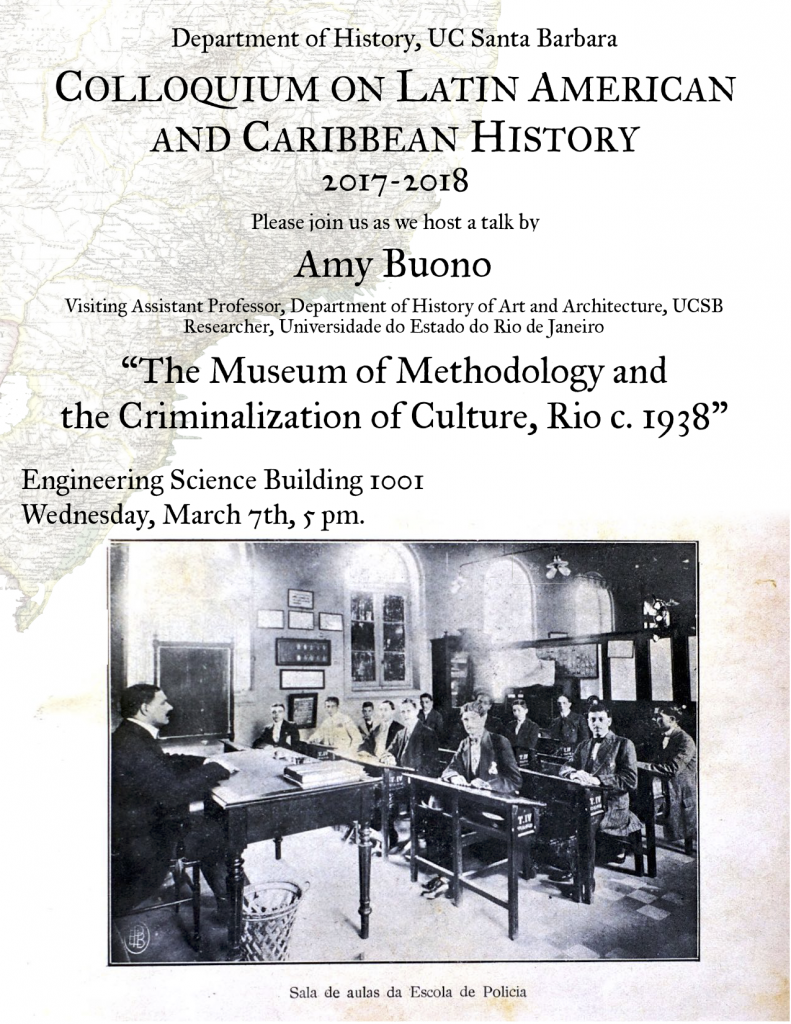
- This event has passed.
The Museum of Methodology and the Criminalization of Culture, Rio c. 1938 (Amy Buono, UCSB/UERJ)
March 7, 2018 @ 5:00 pm - 6:30 pm

Please join us for the next meeting of the Colloquium on Latin American and Caribbean History as we welcome Amy Buono, Visiting Assistant Professor in the Department of History of Art and Architecture at UCSB and Researcher at the Universidade do Estado do Rio de Janeiro, who will be presenting a paper entitled “The Museum of Methodology and the Criminizalization of Culture, Rio c. 1938”.
The talk will be held at 5pm on Wednesday, March 7th, in the Engineering Science Building 1001, and will be followed by a small reception.
Abstract: The Civil Police Museum of Rio de Janeiro, established within the Police Academy in 1912, went by many names: it was also known as the “Museum of Crime” and, tellingly, the “Museum of Methodology.” This lecture examines the museum, its collections, and the role of objects and visual culture in building a civic culture that linked collecting and seeing with police training. By 1938, the Civil Police Museum became Brazil’s earliest institutional collection of Afro-Brazilian heritage, one eventually under the domain of IPHAN. This talk explores the contradictory ways a particular collection within a collection, the inner “Museum of Black Magic,” was understood and preserved in the period, highlighting how police violence and museum preservation are intertwined.
About the Speaker: Amy Buono is a Visiting Assistant Professor in the Department of History of Art and Architecture at the University of California, Santa Barbara, and affiliated as a Researcher at the Universidade do Estado do Rio de Janeiro. Her scholarship centers on materiality, memory, and museums, with a special focus on Brazil and the Atlantic world. Amy’s is the author of the forthcoming book Tupinambá Feathercraft in the Brazilian Atlantic (University of Pennsylvania Press). Her current book project centers on race, pedagogy, and the visuality of crime in the Civil Police Museum of Rio de Janeiro.
